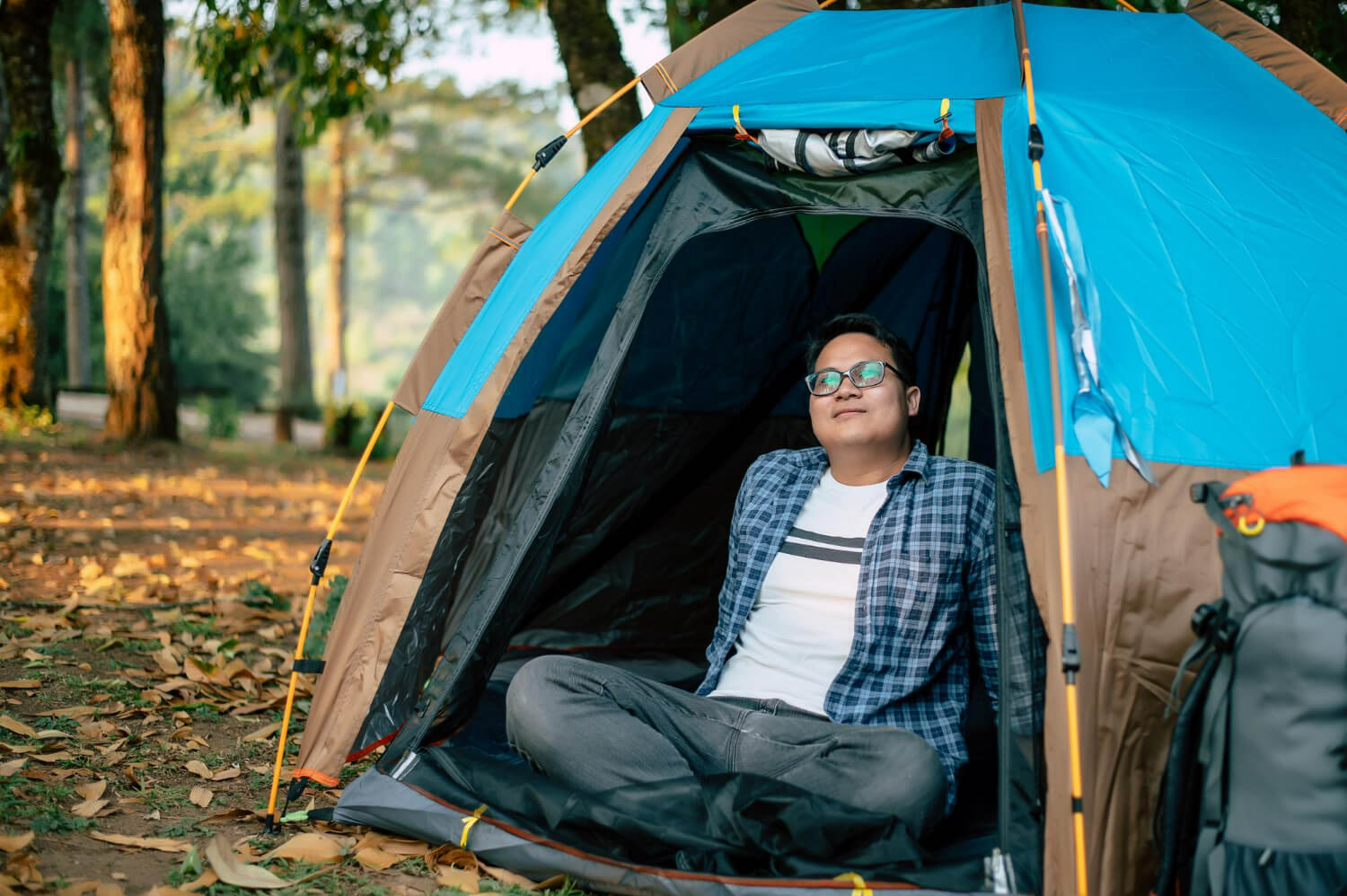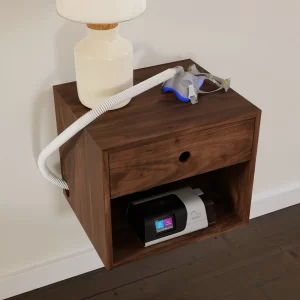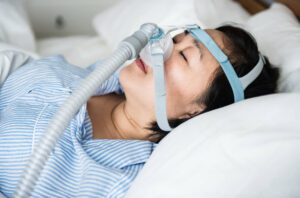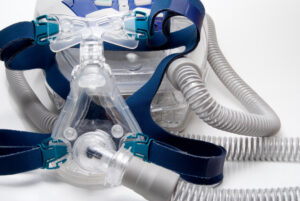Camping can be a great way to relax and enjoy nature. But if you are using a CPAP machine, it may seem like an impossible task. Fortunately, you can use your CPAP while camping with some simple adjustments.
In this article, we’ll explore how you can use your CPAP while camping without compromising your sleep or your comfort. We’ll discuss what supplies you need, as well as tips for setting up and maintaining your CPAP machine during your camping trip.
So whether you’re an experienced camper or just starting out, this article will help you make the most of your outdoor adventures with a CPAP machine in tow.
Table of Contents
Supplies Needed For CPAP Camping
Using a CPAP machine while camping is possible, but you will need to have the right supplies on hand. The most important item is the CPAP device itself, which can be powered either through an outlet or a battery pack. You should also bring at least two extra batteries and an extension cord if you are using an outlet.
Additionally, a noise-canceling mask and lightweight tubing are essential for keeping your CPAP setup comfortable while out in the wilderness. It’s also a good idea to invest in a travel bag specifically designed for storing and transporting your CPAP gear when you’re on the go.
Here are other items that may help make your time camping with CPAP more comfortable and successful. A heated humidifier can help keep your airways moistened during dry weather and high altitudes (it also prevents CPAP cough). If it gets too cold outside, consider bringing along a space heater to keep your tent warm enough for optimal CPAP use.
Preparing Your CPAP Machine For Camping
Once you have gathered the necessary supplies for CPAP camping, it’s time to start preparing your CPAP machine. The first step is to make sure the filters on your machine are clean. These need to be replaced or cleaned every few weeks, so if they haven’t already been done, do this before your trip.
It’s also important to check that all of the hoses and connectors are working properly. If there are any kinks in them, try to straighten them out and make sure they are securely connected.
After that, check that the power cord is not frayed or damaged in any way and make sure your battery is fully charged if you plan on using one while camping.
Make sure the humidifier chamber has enough water in it and add a drop of dish soap in it before putting it back into the device. With these preparations complete, you can now safely use your CPAP machine while camping!
Setting Up Your CPAP Machine At The Campsite
Once you have arrived at your campsite, setting up your CPAP machine is the next step. Depending on the model of CPAP machine you own, there are a few different setup options available to you.
If your CPAP machine has an AC power supply, you can simply plug it into a power source and start using it right away. If your machine does not have an AC power supply, then you will need to use a DC battery or generator to provide power for the CPAP machine.
It is also important to remember that if you are using the DC battery or generator, then you must make sure that the voltage settings are correct before running your CPAP machine. This can be done by checking the labeling on the bottom of the device and ensuring that it matches with what type of battery or generator being used.
Maintaining Your CPAP Machine While Camping
Camping can be a wonderful experience that allows you to get in touch with nature and relax. But if you’re a CPAP user, it may seem like a daunting task to figure out how to maintain your device while away from home.
You’ll want to ensure that there is enough space for yourself and any equipment that comes with the CPAP machine so that it can be used safely throughout the night. If possible, research beforehand where there are outlets available so that you can plan accordingly. Taking these steps will help guarantee a successful camping experience with your CPAP machine!
Tips For Enjoying Your Camping Trip With CPAP
When camping with CPAP, it is important to plan ahead. Make sure you have all of the necessary supplies and equipment you will need, like a power source, a clean water supply, and a comfortable camping spot. Additionally, practice proper hygiene and bring any medical supplies needed to keep your CPAP in good working order.
Be prepared for any unexpected problems that may arise while camping with CPAP. Bring extra tubing and filters in case any parts malfunction or break. Have an emergency backup plan if your power source fails, such as bringing an extra charged battery pack or generator.
Camping with CPAP Plugged In
Camping with a CPAP machine and keeping it plugged in is definitely the most convenient option! Here’s what you need
Campsite with Hookups
Choose a campsite that offers electrical hookups. This is common in RV parks and some state park campgrounds. Make sure the amperage of the hookup is compatible with your CPAP machine (most use standard 15-amp outlets).
Extension Cord
You might need an extension cord to reach your tent or RV from the hookup. Get a heavy-duty, outdoor-rated cord of the appropriate length and gauge to handle the power draw of your CPAP machine.
Surge Protector
A surge protector can help safeguard your CPAP machine from voltage spikes or electrical surges.
Adapter (Optional)
If your CPAP machine has a DC power input, you might need an adapter to convert AC power from the campsite hookup. Check your machine’s manual for compatibility.
Temperature Control
Be mindful of extreme temperatures, as they can affect your CPAP machine’s performance. Keep it out of direct sunlight and don’t store it in extreme heat or cold.
Humidifier
If you use a humidifier with your CPAP, consider using distilled water to prevent mineral buildup, especially in areas with hard water.
With these tips, you can enjoy a comfortable and restful camping trip while using your CPAP machine. Remember, it’s always important to consult your doctor before making any changes to your sleep apnea treatment.
Camping with CPAP Unplugged
While camping with a CPAP plugged in is definitely the easiest option, unplugging for an off-grid adventure is equally possible! Here’s what you need to know:
Power Options when Camping with CPAP Unplugged
- Portable CPAP battery: This is the most popular option for unplugged camping. Look for batteries specifically designed for CPAP machines, with enough capacity to last your entire trip. Consider factors like machine type, humidity usage, and battery runtime.
- Deep-cycle lead-acid battery: These heavy-duty batteries can power your CPAP for several nights, but they’re bulky and require recharging with a generator or solar panel.
- Car battery adapter: If car camping, you can use an inverter to convert your car battery’s 12V DC to power your CPAP. Again, ensure compatibility with your machine.
Tips for Optimizing CPAP Battery Life
- Reduce humidity: Turn off or lower the humidifier setting on your CPAP. Humid air uses more power.
- Lower pressure: Discuss with your doctor if temporarily lowering your CPAP pressure is safe for you. Lower pressure consumes less power.
- Airplane mode: Some CPAPs have an airplane mode that reduces features and saves battery.
- Warm water trick: If using humidity, pre-fill the humidifier chamber with warm water to avoid drawing cold air and using more power.
Additional Tips to Camp with Your CPAP Unplugged
- Weather: Extreme temperatures can impact battery performance. Keep your CPAP and battery inside your tent or RV at night.
- Noise: Some battery alternatives can be noisy. Pack earplugs or consider a white noise machine.
- Backup plan: Pack a small portable charger or solar panel to recharge your phone or battery in case of emergencies.
Most importantly, consult your doctor before camping with your CPAP, especially if you have severe sleep apnea. They can advise on adjusting your therapy for a short period and confirm it’s safe for you to sleep without your machine for a few nights.
FAQ on How to Use CPAP while Camping
What Are The Health Benefits Of Using CPAP While Camping?
Using CPAP while camping can offer significant health benefits, as it helps to keep the airways open during sleep and can reduce symptoms like snoring or gasping for breath. It also helps to reduce daytime fatigue by providing a more restful night’s sleep. In addition, using CPAP while camping may help to reduce the risk of high blood pressure, heart attack, and stroke.
Are There Any Activities I Should Avoid While Using CPAP During Camping?
Using CPAP while camping can be beneficial for your health, but there are also certain activities you should avoid. When camping and using CPAP, it is important to limit physical activity and try to stick to activities that don’t require a lot of exertion. If possible, refrain from activities like strenuous hiking or swimming since these can cause your breathing to become more labored than usual and make it difficult to use the CPAP device.
Are There Any Special Safety Considerations I Should Keep In Mind When Camping With CPAP?
When camping with CPAP, it’s important to keep safety considerations in mind. Make sure the CPAP device is away from direct sunlight, as this can disrupt the temperature of the machine and compromise its performance. Be sure to bring extra supplies such as extra filters, tubing and a power source to ensure your device will last for the duration of your trip.
Can I Bring My CPAP Machine On An Airplane For Camping Trips?
Yes, you can bring your CPAP machine on an airplane for camping trips. Most airlines allow passengers to carry on medical devices like CPAP machines. It’s important to confirm with the airline that you are traveling with prior to your trip, as some may have restrictions in place regarding the size of the device or require documentation from a doctor for passengers bringing CPAP machines onboard.
Are There Any Special Battery Options For Powering My CPAP Machine While Camping?
If you plan to camp while using your CPAP machine, you may need a special battery option to power it. Many companies make portable batteries specifically for this purpose, allowing you to enjoy the outdoors and still benefit from your CPAP therapy. These batteries are lightweight and easy to use, and some even come with additional features like LCD displays or USB ports for charging other devices. You won’t have to worry about running out of power on your trip!
How can I use my CPAP without Power?
Camping with a CPAP doesn’t have to mean sacrificing sleep for the wilderness. You can ditch the power cord and embrace portable power options like CPAP-specific batteries, heavy-duty deep-cycle batteries for extended stays, or even your car battery with an adapter. Remember, power-saving hacks like reducing humidity, lowering pressure (with your doctor’s okay!), and using airplane mode can extend your battery life.
Can I Skip CPAP for a Week?
Skipping CPAP for a week is generally not recommended, even for seemingly healthy individuals. While a night here and there may not have dire consequences, a week without therapy can have subtle yet detrimental effects. Your body thrives on consistency, and sleep apnea left untreated, even for a short period, can disrupt this delicate balance. Potential consequences include daytime fatigue, reduced cognitive function, increased blood pressure, and even a heightened risk of heart problems.
I highly recommend that anyone who uses CPAP research their options before heading out on a camping adventure. With the right preparation and knowledge, you can ensure that your vacation will be as comfortable and enjoyable as possible. Have fun and stay safe while enjoying the great outdoors!




